Daily Writing
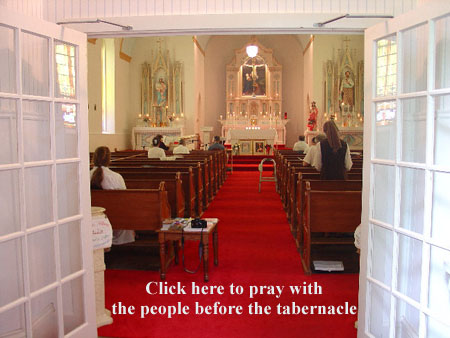
| Shepherds of Christ Daily Writing |
 |
December 5, 2010
December 6th Holy Spirit Novena
Scripture selection is Day 9 Period II.The Novena Rosary Mysteries
for December 6th are Luminous.
We need funds for the mailing
of Fr. Joe's book
Our Lord wants out.
Call 1-888-211-3041
Give gifts that last.
Please remember us when buying
your Christmas gifts.
Can anyone please help us payoff
our loan on the building?
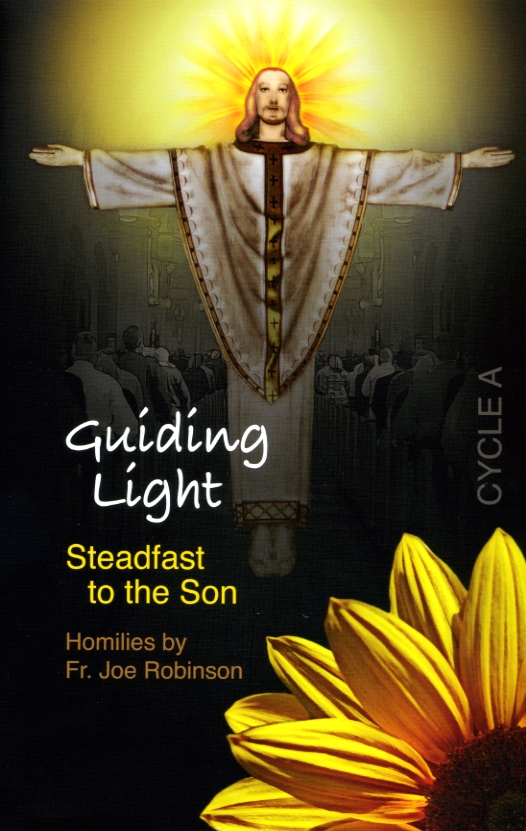
Homilies by Fr. Joe Robinson
Please help us.
Call Doris 1-888-211-3041
or Call
1-727-725-9312
We need to print the
Tiny Tot Rosary Books.
Can anyone please help us with the this?
1-888-211-3041

We need to reprint the Cycle A Homily Book
Please help us to reprint the book
to send to the priests.
1-888-211-3041
December 5, 2010
4th Day of Retreat - Death/Resurrection
Isaiah 53: 4-7
Yet ours were the sufferings
he was bearing,
ours the sorrows he was carrying,
while we thought of him
as someone being punished
and struck with affliction by God;
whereas he was being wounded
for our rebellions,
crushed because of our guilt;
the punishment reconciling us fell on him,
and we have been healed by his bruises.
We had all gone astray like sheep,
each taking his own way,
and Yahweh brought the acts of rebellion
of all of us to bear on him.
Ill-treated and afflicted,
he never opened his mouth,
like a lamb led to the slaughter-house,
like a sheep dumb before its shearers
he never opened his mouth.
John 2: 19-22
Jesus answered, ‘Destroy this Temple, and in three days I will raise it up.’ The Jews replied, ‘It has taken forty-six years to build this Temple: are you going to raise it up again in three days?’ But he was speaking of the Temple that was his body, and when Jesus rose from the dead, his disciples remembered that he had said this, and they believed the scripture and what he had said.
The Good Shepherd died and rose for us —
When we are baptized we are incorporated
into Christ's paschal mystery of death and
resurrection —
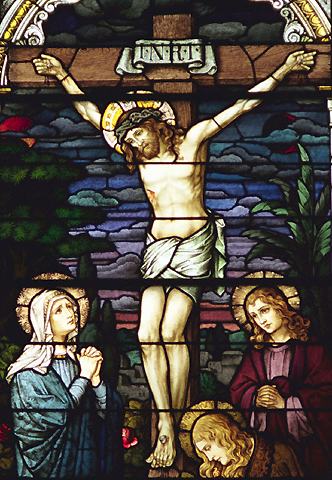
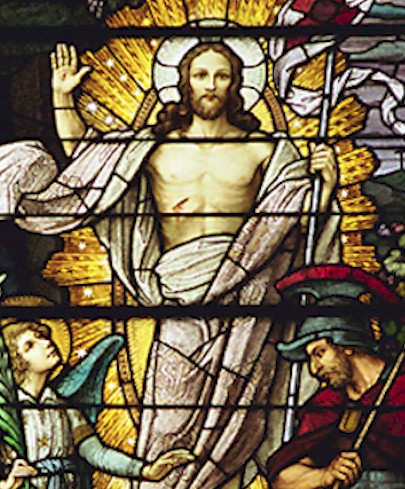
Death/Resurrection
Christ has structured the Christian life
by the way He lived, died and rose from the
dead — St. Paul tells us that the
pattern of death - resurrection must be
at the heart of the Church's life —
Fr. Carter says Individually and collectively,
we continually die in Christ so that
we can continually rise in Him.
Thus we pass over in a process of
ongoing religious transition to
a greater participation in Christ's
resurrection — Fr. Carter says —
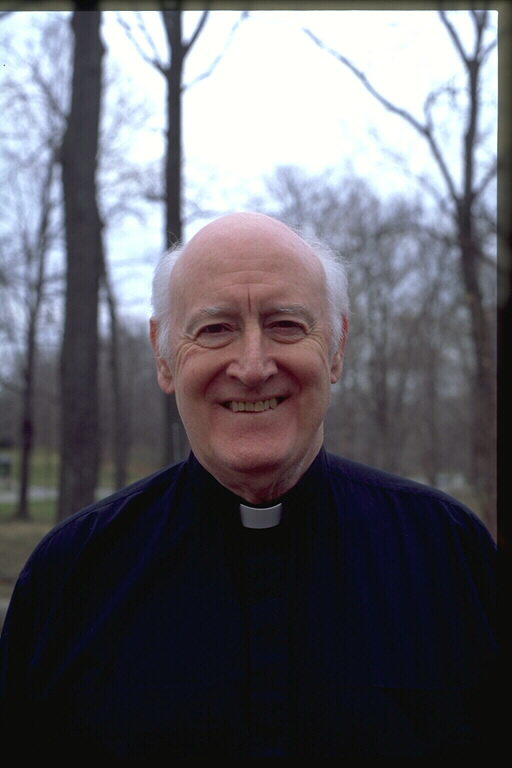
It is true that our participation
in Christ's resurrection will reach
its completion only in eternal life.
Nevertheless, we begin the life of
resurrection here upon earth, in the
here and now of human life, in
the midst of joy and pain, in the
experience of success and failure, in
the sweat of our brow, in the
enjoyment of God's gifts —
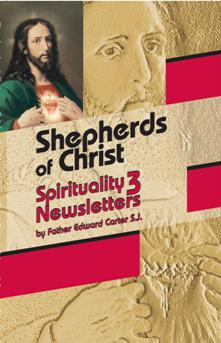
$10.00 plus shipping
Call Doris
1-888-211-3041
Priestly Newsletter Book III - 2000 Issue #2 p. 18-21
We cannot maintain the life of resurrection or grow in it without a willingness to suffer. This does not mean that we need to feel overwhelmed and heavily burdened in our lives. The greater portion of suffering for most Christians seems to be an accumulation of ordinary hardships, difficulties, and pains. At times, however, deep suffering, even suffering of agonizing proportions can enter into one’s life. Whether the sufferings one encounters are of the more ordinary variety or of the more rare and extreme type, Christians must convince themselves that to relate properly to the cross is to grow in resurrection, and growth in resurrection means we will also have an increased capacity to help give resurrection to others.
Pope John Paul II speaks of the role suffering plays in the Christian life: "Every man has his own share in the redemption. Each one is also called to share in that suffering through which the redemption was accomplished. He is called to share in that suffering through which all human suffering has also been redeemed. In bringing about the redemption through suffering, Christ has also raised human suffering to the level of the redemption. Thus each man in his suffering can also become a sharer in the redemptive suffering of Christ…
"Those who share in Christ’s sufferings have before their eyes the paschal mystery of the cross and resurrection, in which Christ descends, in a first phace, to the ultimate limits of human weakness and impotence: Indeed, he dies nailed to the cross. But if at the same time in this weakness there is accomplished his lifting up, confirmed by the power of the resurrection, then this means that the weaknesses of all human sufferings are capable of being infused with the same power of God manifested in Christ’s cross. In such a concept, to suffer means to become particularly susceptible, particularly open, to the working of the salvific powers of God offered to humanity in Christ. In him God has confirmed his desire to act especially through suffering, which is man’s weakness and emptiness of self." 2
Dom Hubert Van Zeller observes: "Men and women who might be turning their afflictions over to God, who have only to unite themselves in spirit with Christ’s passion, are found so often to stop short, and even to make of their trial further matter for selfishness. Even if we do not rebel positively against God’s providential will, we can become so preoccupied with our troubles as to leave God out of account.
"Instead of making us compassionate for others we can squander compassion on ourselves. Suffering is meant to enlarge our hearts, not shrink them. With suffering goes the grace of patience, peace, fortitude, penitence and love. All this can be missed if we make the mistake of turning in upon ourselves as the result of our trials.
"To the Jews the cross was a stumbling block, and to the gentiles foolishness. What is it to us? Often it can be an emblem merely, the significance of the symbol forgotten. The cross is something in which we are, by reason of our Christian inheritance, inextricably involved. Do we yield to it or harden ourselves against it? The cross is not just two planks fitted together on a certain day in the history of the world, and of all the relics which we venerate the most sacred, but a fact of our human experience which may or may not be sacred according to what we do about it." 3
Contrary to what many think, Fr. Edward Leen reminds us that suffering is compatible with happiness: "If men are prone to err in conceiving the nature of happiness, they will necessarily err in judging of its opposite. They commonly think that a man cannot possibly be happy if he is a prey to constant sickness; if he is condemned to experience habitual poverty and to be buried in obscurity; if he fails to take an important part on the world stage; if he is unsuccessful in his enterprises; if he is deprived of the opportunities of intellectual or aesthetic development; and finally, if he fails to gain the applause and the esteem of his fellows. Now though all these things mean grievous sufferings for men, neither singly nor in combination have they the power to rob him of essential happiness.
"Apart from the consideration of the life of the Redeemer, certain undeniable facts of history justify this contention. The saints, in all ages, have been persons whose lot it was, generally speaking, to undergo greater trials and sufferings than others are called upon to endure. Yet they were habitually happy, buoyant and joyous human beings…
"The saints were not violently wresting words from their literal meaning when they proclaimed themselves happy. For the happiness they enjoyed was that which is proper to, and satisfying for man…
"God planned an unbroken life of happiness for man. The Fall modified, but did not prevent the realization of this plan. Suffering, but not unhappiness, becomes the condition of the earthly portion of men’s existence. God does not make unhappiness here to be the price to pay for happiness hereafter. To be happy, in the minds of all men, is to fare well, that is, to live excellently... The Saviour Himself suffered intensely, but He lived the highest life possible for men. He was, therefore, happy. He assured men that He could share His own blissful experience with them. It may appear paradoxical to associate happiness with the mental image of One Who is called the Man of Sorrows. But an analysis of the nature of happiness will show that it was fully realized in the earthly life of the Saviour…" 4
Caryll Houselander writes with great sensitivity regarding the second station of the Way of the Cross: "They put His own garments on Him again, and Jesus comes out from the judgment hall of Pilate to receive His cross.
"He comes to it gladly! This is a strange thing, for the cross is a symbol of shame, and it is to be His deathbed. Already He sees the very shape of His death in the wide-spread arms. From this moment He will be inseparable from it, until He dies on it. He will labour and struggle under the weight of it… Yet Christ welcomes the cross. He embraces it. He takes it into His arms. He lays His beautiful hands on it tenderly, those strong hands of a carpenter that are so familiar with the touch of wood." 5
Henri Nouwen tells this story: "I would like to tell you the story of a middle-aged man whose career was suddenly interrupted by the discovery of leukemia, a fatal blood cancer. All his life plans crumbled and all his ways had to change. But slowly he was able to ask himself no longer: ‘Why did this happen to me?’ but instead: ‘What is the promise hidden in this event?’ When his rebellion became a new quest, he felt that he could give strength and hope to other cancer patients and, that by facing his condition directly, he could make his pain a source of healing for others. To this day, this man not only does more for patients than many ministers are able to, but he also refound his life on a level that he had never known before." 6
St. Paul tells us: But we hold this treasure in pots of earthenware, so that the immensity of the power is God’s and not our own. We are subjected to every kind of hardship, but never distressed; we see no way out but we never despair; we are pursued but never cut off; knocked down, but still have some life in us; always we carry with us in our body the death of Jesus so that the life of Jesus, too, may be visible in our body. Indeed, while we are still alive, we are continually being handed over to death, for the sake of Jesus, so that the life of Jesus, too, may be visible in our mortal flesh. (2 Co 4:7-11)
NOTES:
2. Pope John Paul II, On The Christian Meaning of Human Suffering, United States Catholic Conference, Nos. 19 and 23.
3. Dom Hubert Van Zeller, More Ideas for Prayer, Templegate, p. 112.
4. Edward Leen, C. S. Sp., Why the Cross?, Sheed & Ward, pp. 246-247, 255, 285.
5. Caryll Houselander, The Way of the Cross, Sheed & Ward, p. 21.
6. Henri Nouwen, Out of Solitude, Ave Maria Press, p. 57.
Glorious Mysteries


Resurrection
(1) R. The Pascal mystery is death/resurrection —
Christ has structured the Christian life
by the way He lived, died and rose from
the death.
(2) R. Christ died for our sins —
We must die to those ways, not likened
to Jesus.
(3)
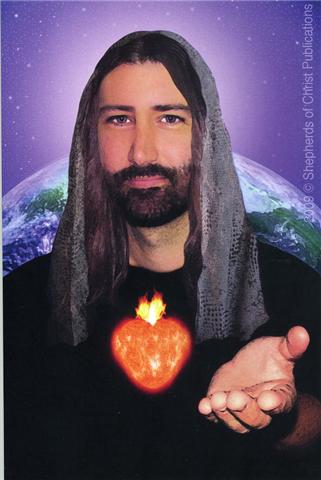
Sing: Prayer for Union with Jesus
Come to me, Lord, and possess my soul. Come into my heart and permeate my soul. Help me to sit in silence with You and let You work in my heart.
I am Yours to possess. I am Yours to use. I want to be selfless and only exist in You. Help me to spoon out all that is me and be an empty vessel ready to be filled by You. Help me to die to myself and live only for You. Use me as You will. Let me never draw my attention back to myself. I only want to operate as You do, dwelling within me.
I am Yours, Lord. I want to have my life in You. I want to do the will of the Father. Give me the strength to put aside the world and let You operate my very being. Help me to act as You desire. Strengthen me against the distractions of the devil to take me from Your work.
When I worry, I have taken my focus off of You and placed it on myself. Help me not to give in to the promptings of others to change what in my heart You are making very clear to me. I worship You, I adore You and I love You. Come and dwell in me now.
-God's Blue Book, January 17, 1994
(4) R. In heaven we will have the beatific
vision — to be possessed by God —
In baptism we receive this sharing,
in God's life —
The Father, Son and Holy Spirit
dwell in the baptized, graced soul —
So we are preparing for this union
here below —
(5) R. Come to me Lord and possess my soul —
Fill me God more and more with
Your life —
(6) R. We want God to work in our heart
We surrender to Him —
Giving Him ourselves —
Asking Him to help us live the
virtuous life — more and more
likened to God —
Asking Him to increase the virtues
of faith, hope and love —
(7) R. Come to me Lord and possess my
soul —
We want God's will for everybody —
We want to help build God's Kingdom —
We are not jealous —
We want people to bear fruit for Jesus —
We don't see with jealous eyes,
envy —
We don't try to rise above others
for our selfish gain —
We want a strong unit serving God.
(8) R. Come to me Lord and possess my soul —
God fill me with Your life
God help me to be holy —
(9) Sing:
Come to me, Lord, and possess my
soul.
Come into my heart and permeate my soul.
Help me to sit in silence
with You and let You work in my heart.
(10) Sing: Glory, Glory, Glory Lord
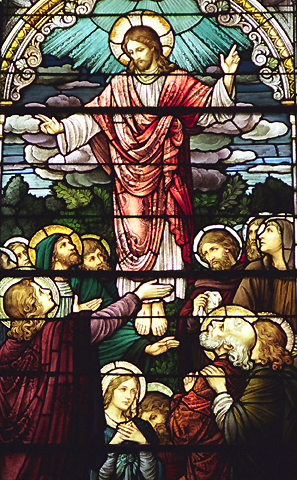
Ascension
(1) Acts 1: 6-9
Now having met together, they asked him, 'Lord, has the time come for you to restore the kingdom to Israel?' He replied, 'It is not for you to know times or dates that the Father has decided by his own authority, but you will receive the power of the Holy Spirit which will come on you, and then you will be my witnesses not only in Jerusalem but throughout Judaea and Samaria, and indeed to earth's remotest end.'
As he said this he was lifted up while they looked on, and a cloud took him from their sight.
(2) R. God has called us to go out to spread
the Good News —
We are commissioned in baptism to do
this —
Apostles — one who is sent —
(3) R. We work to help build God's Kingdom —
We leave a mark here on the world —
that others will benefit spiritually
because of our lives of love and
serving God according to His
will —
(4) Sing:
Come to me, Lord, and possess my
soul.
Come into my heart and permeate my soul.
Help me to sit in silence
with You and let You work in my heart.
(5) Sing: A Song from Jesus
(6) R. That Presence of God —
We want to know God with us —
To be one in Him —
To know the Father, Son and Holy Spirit
dwell in our graced, baptized soul —
(7) R. We want only God's will for us and others —
We know God is love —
To be like Jesus we must be focusing
on relationship in love according
to God's will —
(8) R. We are called by God to respond to His love
Call - Response
God calls we respond —
God said let there be light and there was
light —
Call response
The order God put in creation —
(9) R. There was disorder because of the
sin of Adam and Eve
Disorder in the wounded human nature —
Disorder in the elements —
Disorder in the acts of animals —
Disorder in the Universe because
of Adam and Eve's sin —
There is death because of Adam
and Eve's sin
There is pain in child bearing
because of Adam and Eve's
sin
(10) Isaiah 30: 19-21, 23-26
Yes, people of Zion living in Jerusalem,
you will weep no more.
He will be gracious to you
when your cry for help rings out;
as soon as he hears it,
he will answer you.
When the Lord has given you
the bread of suffering
and the water of distress,
he who is your teacher will hide no longer,
and you will see your teacher
with your own eyes.
Your ears will hear these words
behind you,
'This is the way, keep to it,'
whether you turn to right or left.He will send rain
for the seed you sow in the ground,
and the bread that the ground provides
will be rich and nourishing.
That day, your cattle will graze
in wide pastures.
Oxen and donkeys that work the land
will eat for fodder wild sorrel,
spread by the shovel-load and fork-load.
On every lofty mountain,
on every high hill
there will be streams and water-courses,
on the day of the great slaughter
when the strongholds fall.
Then moonlight will be
bright as sunlight
and sunlight itself will be
seven times brighter
– like the light of seven days in one –
on the day Yahweh dresses
his people's wound
and heals the scars of the blows
they have received."
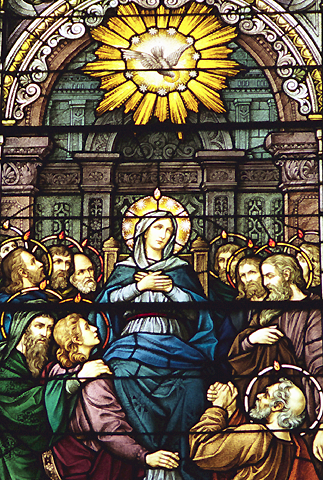
Descent of the Holy Spirit on the Apostles
(1) Acts 2: 1-4
When Pentecost day came round, they had all met together, when suddenly there came from heaven a sound as of a violent wind which filled the entire house in which they were sitting; and there appeared to them tongues as of fire; these separated and came to rest on the head of each of them. They were all filled with the Holy Spirit and began to speak different languages as the Spirit gave them power to express themselves.
(2) Sing: Veni Sancte Spiritus
(3) Sing: Pentecost Sequence and Veni Sancte Spiritus
From the Lectionary
Pentecost Sequence
Come, Holy Spirit, come!
And from your celestial home
Shed a ray of light divine!Come, Father of the poor!
Come, source of all our store!
Come, within our bosoms shine!You, of comforters the best;
You, the soul's most welcome guest;
Sweet refreshment here below;In our Labor, rest most sweet;
Grateful coolness in the heat;
Solace in the midst of woe.O most blessed Light divine,
Shine within these hearts of yours,
And our inmost being fill!Where you are not, man has naught,
Nothing good in deed or thought,
Nothing free from taint of ill!Heal our wounds, our strength renew;
On our dryness pour your dew;
Wash the stains of guilt away;Bend the stubborn heart and will;
Melt the frozen, warm the chill;
Guide the steps that go astray.On the faithful, who adore
And confess you, evermore
In your sev'nfold gift descend;Give them virtue's sure reward;
Give them your salvation, Lord;
Give them joys that never end. Amen.
Alleluia.
(4) Sing: Come Holy Ghost
(5) Sing: Spirit Song
(6) John 16: 12-15
I still have many things to say to you
but they would be too much for you
to bear now.
However, when the Spirit of truth comes
he will lead you to the complete truth,
since he will not be speaking
of his own accord,
but will say only what he has been told;
and he will reveal to you
the things to come.
He will glorify me,
since all he reveals to you
will be taken from what is mine.
Everything the Father has is mine;
that is why I said:
all he reveals to you
will be taken from what is mine.
(7) From Tell My People by Fr. Edward J. Carter, S.J.
The Holy Spirit
Jesus: "My beloved friend, tell My people to pray daily to the Holy Spirit. They are to pray for an increase in His gifts. My people must realize that the Holy Spirit comes to transform them. The Spirit desires to transform you more and more according to My image. Those who are docile to His touch become increasingly shaped in My likeness. He performs this marvel within Mary's Immaculate Heart. The more one dwells in My Mother's Heart, the more active are the workings of the Spirit. The Spirit leads Mary to place you within My own Heart. In both Our Hearts, then, your transformation continues. The more you are formed after My own Heart, the more I lead you to the bosom of My Father. Tell My people all this. Tell them to pray daily for a greater appreciation of these wondrous gifts. I am Lord and Master. All who come to My Heart will be on fire to receive the gifts of the Spirit in ever greater measure! I love and bless My people!"
Reflection: The Holy Spirit is given to us to fashion us ever more according to the likeness of Jesus. And the more we are like Jesus, the more Jesus leads us to the Father. Do we, each day, pray to the Holy Spirit to be more open to His transforming influence? Do we strive each day to grow in union with Mary? The greater our union with our Mother, the spouse of the Holy Spirit, the greater is the transforming action of the Holy Spirit within us.
(8) Excerpt from Shepherds of Christ Priestly Newsletter Book III, pp. 39-44
Life In and With Jesus
The spiritual life centers in Christ. Here are words from the Jerusalem Catecheses: "When we were baptized into Christ and clothed ourselves in him, we were transformed into the likeness of the Son of God. Having destined us to be his adopted sons, God gave us a likeness to Christ in his glory, and living as we do in communion with Christ, God’s anointed, we ourselves are rightly called ‘the anointed ones.’ " 5
Msgr. Robert Guste says: "Ideal Catholics held up to us by the Church are the saints. As you read their lives, what do you notice? One after the other, they were men and women who had a deep, personal relationship with Our Lord Jesus Christ. Their hearts were on fire with love for Him..." 6
When we are baptized we are incorporated into Christ’s paschal mystery of death and resurrection. St. Paul speaks of this marvelous union with Jesus: You cannot have forgotten that all of us, when we were baptised into Christ Jesus, were baptised into his death. So by our baptism into his death we were buried with him, so that as Christ was raised from the dead by the Father’s glorious power, we too should begin living a new life. (Rm 6:3-4).
Christ has structured the Christian life by the way He lived, died, and rose from the dead. It is obvious, then, as Paul tells us above, that the pattern of death-resurrection must be at the heart of the Church’s life. Individually and collectively, we continually die with Christ so that we may continually rise with Him. Thus we pass over in a process of ongoing religious transition to a greater participation in Christ’s resurrection. It is true that our participation in Christ’s resurrection will reach its completion only in eternity. Nevertheless, we begin the life of resurrection here upon the earth, in the here and now of human life, in the midst of joy and pain; in the experience of success and failure, in the sweat of our brow, in the enjoyment of God’s gifts. As Christians, we should have a sense of dynamic growth concerning our here and now life of resurrection.
We cannot maintain the life of resurrection or grow in it without a willingness to suffer. This does not mean that we need to feel overwhelmed and heavily burdened in our lives. The greater portion of suffering for most Christians seems to be an accumulation of ordinary hardships, difficulties, and pains. At times, however, deep suffering, even suffering of agonizing proportions, can enter into one’s life. Whether the sufferings one encounters are of either the more ordinary variety or the more rare and extreme type, Christians must convince themselves that to relate properly to the cross is to grow in resurrection, and growth in resurrection means we will also have an increased capacity to help give resurrection to others.
The Church invites us to share deeply in the passion of Christ, in the cross of Christ. She does so that we might share deeply in His life of resurrection—here and hereafter. The more we die with Christ, the more we share in His life of resurrection—here and hereafter. Our ultimate goal here below is not the cross, but resurrection—the newness of life the cross leads to - here below as well as in eternity.
We are meant to share in all of the mysteries of Christ here below—we are meant to relive them in our own lives. And all of these mysteries are directed to the crowning mystery of Jesus, His resurrection: "As the Church is ever re-enacting, during all the ages, the life story of her Divine Spouse—undergoing in the Mystical Body what He suffered in His Natural Body, so it must be too, in some measure, for every individual Christian that lives in real unity with Christ. It was thus that the saints understood the life of the Divine Master. They not merely contemplated it, they lived it. This was the source of the immense sympathy they were capable of experiencing for Him in His different states. They felt in a certain measure what He felt, and what is true of Our Lord’s life considered as a whole must be true in no imperfect or limited manner of that which was the supreme and crowning mystery in that life—namely, the Resurrection. This must be, not merely a fact in Christian history, but a phase of Christian experience …We do not readily perceive that, in God’s plan, not only the Cross, but the Risen Life that followed it, is meant to be part of our terrestrial existence. Christ did not pass from the Cross straight to heaven. The Christian is not meant to do so either. In the case of Jesus the Cross preceded, prepared and prefaced a risen life on earth. In the case of the Christian the Cross is meant to play a somewhat similar role—that is, to be the prelude to a risen life, even here below.
"The Cross cannot be completely understood except it is viewed in the full light of the Resurrection. It is the latter, not the former, that is the ultimate mystery for us…The Cross is a means, not an end; it finds its explanation only in the empty tomb; it is an entrance into life, not a mode of death. Any death that enters into God’s plan must necessarily issue forth in life. If He lays upon us the necessity of dying it is in order that we may live…In order that we may live as we ought, our rebellious nature must be crucified. Crucifixion always remains the only mode of salvation.
"God sends trials and crosses simply to deaden in us the activity of the forces that make for the decay of the spiritual life, in order that that spiritual life may develop and expand unimpeded. According as the life of perverse nature ebbs away from us on our cross united with Christ’s, the Divine Life that God has placed in all whom He has called begins to make itself more manifest and to display increased vigour and vitality…It is to that Resurrection, that life in death, that God directs all the circumstances of our life—it is the object He aims at in His dealing with us." 7
In his above words, Fr. Edward Leen, C.S.Sp., speaks about a special episode of our participation in the resurrection of Jesus. He speaks of our Christ-life, our life of grace, in the highly developed state. We should all strive for this state. We must realize, however, that all those who live in the state of grace are, in an essential way, living the life of resurrection. They are alive in Christ Jesus.
5. Jerusalem Catecheses, as in The Liturgy of the Hours, Catholic Book Publishing Co., Vol. II, p. 608.
6. Msgr. Robert Guste, The Gift of the Church, Queenship Publications, pp. 22-23.7. Edward Leen, In the Likeness of Christ, Sheed and Ward, pp. 290-300.
(9) From Priestly Newsletter Book III - Life In and With Jesus continues
The following words of St. John Eudes remind us of the glorious goal the Christian is called to: the most intimate union with Jesus.
"I ask you to consider that our Lord Jesus Christ is your true head and that you are a member of his body. He belongs to you as the head belongs to the body. All that is his is yours: breath, heart, body, soul and all his faculties. All of these you must use as if they belonged to you, so that in serving him you may give him praise, love and glory. You belong to him as a member belongs to the head. This is why he earnestly desires you to serve and glorify the Father by using all your faculties as if they were his.
"He belongs to you, but more than that, he longs to be in you, living and ruling in you, as the head lives and rules in the body. He desires that whatever is in him may live and rule in you: his breath in your breath, his heart in your heart, all the faculties of his soul in the faculties of your soul...
"You belong to the Son of God, but more than that, you ought to be in him as the members are in the head. All that is in you must be incorporated into him. You must receive life from him and be ruled by him. There will be no true life for you except in him, for he is the one source of true life. Apart from him you will find only death and destruction. Let him be the only source of your movements, of the actions and the strength of your life.
"Finally, you are one with Jesus as the body is one with the head. You must, then, have one breath with him, one soul, one life, one will, one mind, one heart. And he must be your breath, heart, love, life, your all. These great gifts in the follower of Christ originate from baptism. They are increased and strengthened through confirmation and by making good use of other graces that are given by God. Through the holy eucharist they are brought to perfection." 8
9
St. Ignatius of Antioch was deeply consumed with love for Jesus: "At last I am well on the way to being a disciple. May nothing, seen or unseen, fascinate me, so that I may happily make my way to Jesus Christ! Fire, cross, struggles with wild beasts, wrenching of bones, mangling of limbs, crunching of the whole body, cruel tortures inflicted by the devil—let them come upon me, provided only I make my way to Jesus Christ."
Cardinal Newman tells us: "Everyone who breathes, high and low, educated and ignorant, young and old, man and woman, has a mission, has a work. We are not born at random... God sees every one of us; He creates every soul, He lodges it in a body, one by one, for a purpose. He needs, He deigns to need, every one of us."
Because of the uniqueness of each Christian's existence, he or she presents Christ with a unique opportunity. Each Christian has the vocation to offer Christ his or her humanity so that Jesus can live in that individual in a special way. This Jesus is Priest, Prophet and King. To the extent that an individual Christian offers his or her humanity to Jesus, that person has an unique opportunity to help to continue the work of the redemption—an opportunity that no one else can fulfill. Likewise, to the extent that an individual fails to offer his or her humanity to Christ, Jesus loses the opportunity to continue His redemptive work according to that person's uniqueness.
8. St. John Eudes, from a treatise on the Admirable Heart of Jesus, as in The Liturgy of the Hours, Catholic Book Publishing Co., Vol. IV, pp. 1331-32.
9. St. Ignatius of Antioch, "Ignatius to the Romans," as in The Treasury of Catholic Wisdom, Ignatius Press., p. 14.
10. John Henry Cardinal Newman, Discourses Addressed to Mixed Congregations, Longmans, Green and Co., pp. 111-112.
(10) From Priestly Newsletter Book III - Life In and With Jesus continues
11
Concerning the prophetic or teaching office of Christ, each of us has the ever-present opportunity of witnessing to the truth of Christ by the way we live. Mother Teresa gives a striking example of this. She says: "I received a letter from a wealthy Brazilian man. He assured me that he had lost his faith — not just his faith in God but his faith in humanity as well. He was fed up with his situation and everything around him. He only thought about suicide.
"One day, walking on a busy street downtown, he saw a television set in a store window. The program was about our Home for the Dying in Calcutta, and it showed our Sisters taking care of the sick and the dying.
"The man confessed that when he saw that, he felt the urge to kneel and pray, after many years of not ever kneeling or praying.
"From that day on, he recovered his faith in God and in humanity, and he was convinced that God still loves him."
St. Paul, one who loved Jesus so deeply, has left us these words: "But we hold this treasure in pots of earthenware, so that the immensity of the power is God’s and not our own. We are subjected to every kind of hardship, but never distressed; we see no way out but we never despair; we are pursued but never cut off; knocked down, but still have some life in us; always we carry with us in our body the death of Jesus so that the life of Jesus, too, may be visible in our body. Indeed, while we are still alive, we are continually being handed over to death, for the sake of Jesus, so that the life of Jesus, too, may be visible in our mortal flesh." (2 Cor 4:7-11).
Here are words from St. Claude La Columbičre, one of the great apostles of devotion to the Heart of Christ. Speaking to Jesus, Claude says:
You share my burdens,
You take them upon yourself.
You listen to me fondly when I tell you my troubles.
You never fail to lighten them.
I find You at all times and in all places.
You never leave me.
I will always find You wherever I go.Old age or misfortune will not cause You to abandon me.
You will never be closer to me than
When all seems to go against me.
No matter how miserable I may be,
You will never cease to be my friend.You tolerate my faults with admirable patience.
You are always ready to come to me, if I so desire it.Jesus, may I die praising you!
May I die loving you!
May I die for the love of you.12
11. Mother Teresa,
In My Own Words, Liguori Publications, p. 44.
12. St. Claude de la Columbiere, as
published by Apostleship of Prayer, Detroit Province of the Society
of Jesus.
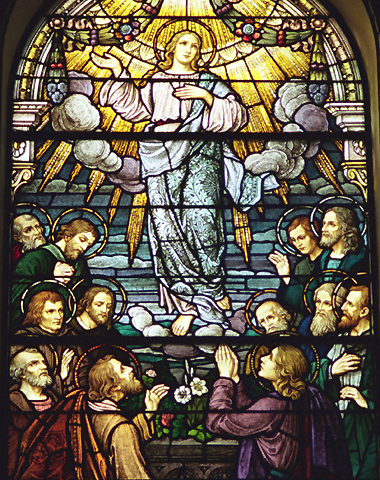
The Assumption
(1) 1 Corinthians 15: 20-28
In fact, however, Christ has been raised from the dead, as the first-fruits of all who have fallen asleep. As it was by one man that death came, so through one man has come the resurrection of the dead. Just as all die in Adam, so in Christ all will be brought to life; but all of them in their proper order: Christ the first-fruits, and next, at his coming, those who belong to him. After that will come the end, when he will hand over the kingdom to God the Father, having abolished every principality, every ruling force and power. For he is to be king until he has made his enemies his footstool, and the last of the enemies to be done away with is death, for he has put all things under his feet. But when it is said everything is subjected, this obviously cannot include the One who subjected everything to him. When everything has been subjected to him, then the Son himself will be subjected to the One who has subjected everything to him, so that God may be all in all.
(2) Revelation 11: 19; 12: 1-6
Then the sanctuary of God in heaven opened, and the ark of the covenant could be seen inside it. Then came flashes of lightning, peals of thunder and an earthquake and violent hail.
Now a great sign appeared in heaven: a woman, robed with the sun, standing on the moon, and on her head a crown of twelve stars. She was pregnant, and in labour, crying aloud in the pangs of childbirth. Then a second sign appeared in the sky: there was a huge red dragon with seven heads and ten horns, and each of the seven heads crowned with a coronet. Its tail swept a third of the stars from the sky and hurled them to the ground, and the dragon stopped in front of the woman as she was at the point of giving birth, so that it could eat the child as soon as it was born. The woman was delivered of a boy, the son who was to rule all the nations with an iron sceptre, and the child was taken straight up to God and to his throne, while the woman escaped into the desert, where God had prepared a place for her to be looked after for twelve hundred and sixty days.
(3) Excerpt from Shepherds of Christ Priestly Newsletter Book III, pp. 47-48
The Holy Spirit and Mary
The late Archbishop Luis M. Martinez of Mexico strikingly speaks of the ongoing cooperation of Mary with the Holy Spirit regarding the reproduction of Jesus within us: "Christian life is the reproduction of Jesus in souls…
"Now, how will this mystical reproduction be brought about in souls? In the same way in which Jesus was brought into the world, for God gives a wonderful mark of unity to all His works. Divine acts have a wealth of variety because they are the work of omnipotence; nevertheless, a most perfect unity always shines forth from them because they are the fruit of wisdom; and this divine contrast of unity and variety stamps the works of God with sublime and unutterable beauty.
"In His miraculous birth, Jesus was the fruit of heaven and earth…The Holy Spirit conveyed the divine fruitfulness of the Father to Mary, and the virginal soil brought forth in an ineffable manner our most loving Savior, the divine Seed, as the prophets called Him…
(4) From Priestly Newsletter Book III - The Holy Spirit and Mary continues
"That is the way He is reproduced in souls. He is always the fruit of heaven and earth.
"Two artisans must concur in the work that is at once God’s masterpiece and humanity’s supreme product: the Holy Spirit and the most holy Virgin Mary. Two sanctifiers are necessary to souls, the Holy Spirit and the Virgin Mary, for they are the only ones who can reproduce Christ.
"Undoubtedly, the Holy Spirit and the Virgin Mary sanctify us in different ways. The first is the Sanctifier by essence; because He is God, who is infinite sanctity; because He is the personal Love that completes, so to speak, the sanctity of God, consummating His life and His unity, and it belongs to Him to communicate to souls the mystery of that sanctity. The Virgin Mary, for her part, is the co-operator, the indispensable instrument in and by God’s design. From Mary’s maternal relation to the human body of Christ is derived her relation to His Mystical Body which is being formed through all the centuries until the end of time, when it will be lifted up to the heavens, beautiful, splendid, complete, and glorious.
(5) From Priestly Newsletter Book III - The Holy Spirit and Mary continues
"These two, then, the Holy Spirit and Mary, are the indispensable artificers of Jesus, the indispensable sanctifiers of souls. Any saint in heaven can co-operate in the sanctification of a soul, but his co-operation is not necessary, not profound, not constant: while the co-operation of these two artisans of Jesus of whom we have just been speaking is so necessary that without it souls are not sanctified (and this by the actual design of Providence), and so intimate that it reaches to the very depths of our soul. For the Holy Spirit pours charity into our heart, makes a habitation of our soul, and directs our spiritual life by means of His gifts. The Virgin Mary has the efficacious influence of Mediatrix in the most profound and delicate operations of grace in our souls. And, finally, the action of the Holy Spirit and the co-operation of the most holy Virgin Mary are constant; without them, not one single character of Jesus would be traced on our souls, no virtue grow, no gift be developed, no grace increased, no bond of union with God be strengthened in the rich flowering of the spiritual life.
"Such is the place that the Holy Spirit and the Virgin Mary have in the order of sanctification. Therefore, Christian piety should put these two artisans of Christ in their true place, making devotion to them something necessary, profound, and constant." 18
18. Archbishop Luis M. Martinez, The Sanctifier, op. cit. pp. 5-7.
(6) Excerpt from Shepherds of Christ Priestly Newsletter Book III, pp. 48-51
The Church
19We live out our spiritual lives within the Church. The Church is a multi-splendored reality. Let us reflect upon some of the key ideas connected with the Church.
Henri de Lubac states: "The Church is a mysterious extension in time of the Trinity, not only preparing us for the life of unity but bringing about even now our participation in it. She comes from and is full of the Trinity. She is for us — in a favourite phrase of Bossuet — ‘Jesus Christ … communicated’. She is ‘the Incarnation continued.’ She is, as Dietrick Bonhoeffer used to say, ‘the presence of Christ on earth’ —- she speaks with ‘the authority of Christ living and present in her.’… St. Paul applies to her this same word ‘mystery’ which he had first used of Christ. She is after all, the spouse of Christ and his body."
Fr. Bruno Forte tells us: "The Church comes from the Trinity, reflects in itself the Trinitarian communion—oneness in diversity—and journeys toward the Trinity, to the final handing over of all things to Christ, so that he might hand them over to the Father and God might be all in all. As ‘a people gathered in the unity of the Father and of the Son and of the Holy Spirit,’ the Church is the Church of the Father. In his universal salvific plan, God has willed it to be a sign and instrument of the unity of people among themselves and with him. It is the Church of the Son, who through his incarnation and the paschal mystery has placed it in history as His Body. It is the Church of the Spirit, who makes the Risen Christ present in human history and enriching the people of God with charisms and ministries, leads it toward the promised future goal."
19. Henri de Lubac, S. J., The Church: Paradox and Mystery, translated by James R. Dunne, Alba House, p. 24.
20. Fr. Bruno Forte, He Loved Them to the End, St. Paul Books & Media, p. 74-75.
(7) From Priestly Newsletter Book III - The Church continues
The fact that the Church is here on earth a reflection of the Trinitarian Community easily leads us to reflect upon the Church as the Body of Christ, since this name given to the Church also emphasizes the communal aspect of the Church. St. Paul tells us: For as with the human body which is a unity although it has many parts — all the parts of the body, though many, still making up one single body — so it is with Christ. We were baptised into one body in a single Spirit, Jews as well as Greeks, slaves as well as free men, and we were all given the same Spirit to drink. And indeed the body consists not of one member but of many. If the foot were to say, ‘I am not a hand and so I do not belong to the body’, it does not belong to the body any the less for that. Or if the ear were to say, ‘I am not an eye, and so I do not belong to the body’, that would not stop its belonging to the body. If the whole body were just an eye, how would there be any hearing? If the whole body were hearing, how would there be any smelling?
Now Christ’s body is yourselves, each of you with a part to play in the whole. And those whom God has appointed in the Church are, first apostles, secondly prophets, thirdly teachers; after them, miraculous powers, then gifts of healing, helpful acts, guidance, various kinds of tongues. Are all of them apostles? Or all prophets? Or all teachers? Or all miracle-workers? Do all have the gifts of healing? Do all of them speak in tongues and all interpret them? (1 Cor 12:12-17; 27-30)
(8) From Priestly Newsletter Book III - The Church continues
Some two thousand years ago Christ walked the earth teaching, healing the sick, forgiving sins, extending His mercy and kindness. By such a life which culminated in death and resurrection, Christ redeemed the world. This objective redemption was accomplished by Christ alone. Through it, He won for people of all time the necessary graces for their salvation and sanctification.
However, it is necessary that such graces be distributed to each individual as one plays out his or her part in the drama of human existence. Such a distribution of grace is the work of subjective redemption.
Jesus still walks the earth as the work of redemption continues. However, He now walks the earth according to a different type of existence. He does not walk the earth in His physical body, but rather in His Mystical Body, the Church, the People of God. Through the members of His Church, Christ continues to be present as He teaches, administers the sacraments, extends His mercy — all done through the members of His Body, the Church. This mystical Christ, in turn, derives all supernatural power from Christ, the Head, who reigns gloriously with the Father and the Holy Spirit.
The Church, therefore, is the earthly continuation of Christ’s redemptive Incarnation. This mission which the Church has, although a great responsibility, is also a great privilege. In proportion as each Christian offers and commits himself or herself to Christ, the Church in her entirety more and more mirrors forth Christ to the world. This Christ, whom the Church portrays to the world, is the Christ who is Prophet, King and Priest.
21
We now reflect upon the Church as Spouse of Christ. Fr. Joseph Murphy, S.J., tells us: "John Paul II always quotes the rich doctrinal and patristic traditions of the Church which refer to Christ as the Spouse of the Church and the Spouse of souls, given to both in the Eucharistic mystery. For him the key to understanding the sacramentality of marriage, not to mention the nature of humanity, is the spousal love of Christ for the Church demonstrated in Ephesians 5. Christ is the Head of the Church as Savior of His Body. The Church is exactly that Body which receives from Him all that through which it becomes and is His Body. As Head and Savior of the Church He is also Bridegroom of His Bride…"
21. The Thoughts of Pope John Paul II: A Collection of Essays and Studies, John M. McDermott, S. J., Editor, Editrice Pontificia Universita Gregoriana, p. 135.
(9) From Priestly Newsletter Book III - The Church continues
The Church is a mother to us. Henri de Lubac speaks concerning this beautiful truth:
22"The Church is my mother because she brought me forth to a new life. She is my mother because her concern for me never slackens, any more than do her efforts to deepen that life in me, however unenthusiastic my cooperation. And though in me this life may be a fragile and timid growth, I have seen its full flowering in others...
"Happy those who from childhood have learnt to look on the Church as a mother! Happier still those whose experience, in whatever walk of life, has confirmed its truth! Happy those who one day were gripped by (and whose appreciation of it ever grew) the astonishing newness, richness and depth of the life communicated to them by this mother!"
23
Avery Dulles, S.J., the well-known theologian who has written much about the Church, observes: "The Church, as I have already contended, is essentially a mystery of grace, a wonderful encounter between the divine and the human. Even in its visible structures, the Church is not a mere organization to be judged on grounds of efficiency, but a sacrament of God’s saving deed in Jesus Christ. From this it follows, in my judgment, that the Church’s forms of speech and life, and indeed its entire corporate existence, must be such as to mediate a vital communion with Christ the Lord. The Church must be a place of prayer and worship, praise and witness. Any institutional change in the Church must be carefully assessed for its effect on the spiritual life of the members. Does it intensify their faith, their hope, their charity? Does it help them to center their lives on Christ and to ground their existence in the God who raised him from the dead?"
22. Henri de Lubac, S.J., The Church: Paradox and Mystery, op. cit., pp. 2-4.
23. Avery Dulles, S.J., The Resilient Church, Doubleday & Company, p. 39.
(10) From Priestly Newsletter Book III - The Church continues
Fr. Gerald Vann, O.P., speaks movingly about our life in the Church:
24"If you live in the Church and try to use the power of the Church to increase the life of the Church, then the power of the Church will make you yourself whole; and in your wholeness you will help to make your family and make your world. But you will be building for a more than earthly beatitude because you will be building the city which is eternal. Here you build in shadow, you build for a future which is invisible, and so you can only build in hope. And often your plans will be wrecked and your dreams come crashing about your ears, and you will need the strength of the Rock which is Christ to give you patience and fortitude...
"And when death has come to you...the Church will bless you for the life you have added to it, and there will be men to heed you better than they did when you were here...
"But you, for your part, will be no longer in the shadow but in the glory of the Light inaccessible; you will be in the City that is yours because you helped to build it; you will see Him at last as He is, and be wholly with Him; and you will have no more any mourning or weeping or any other sorrow, for all these former things will have been transmuted into happiness and peace, and you will walk with Him—together with all those you have helped to bring to Him, even until the end of the world—you will walk with Him in happiness for ever, in the cool of the eternal evening."
24. Gerald Vann, O.P., The Heart of Man, Longmans, Green and Co., pp. 151-152.
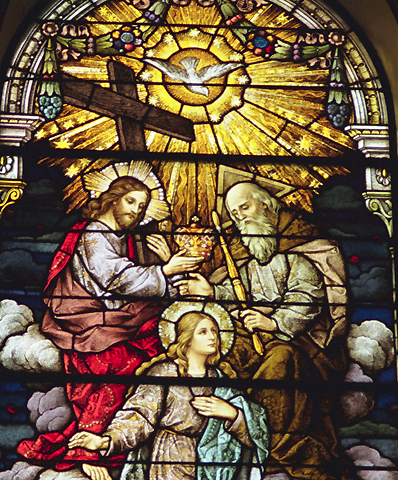
The Coronation
(1) Excerpt from Shepherds of Christ Priestly Newsletter Book III, pp. 80-81
The Theology of Consecration
A. Boussard gives an extremely fine and concise sketch of the theology of consecration:
"By the Incarnation, in and of itself, the Humanity of Jesus is consecrated, so that in becoming Man, Jesus is ipso facto constituted Savior. Prophet, King, Priest, and Victim of the One Sacrifice that was to save the world. He is the 'Anointed', par excellence, the 'Christ' totally belonging to God, His Humanity being that of the Word and indwelled by the Holy Spirit. When, by a free act of His human will, He accepts what He is, doing what He was sent to do, He can say that He consecrates 'Himself'. In Christ, therefore, what might be called His 'subjective' consecration is a perfect response to the 'objective' consecration produced in His Humanity through the Incarnation.
"And what Christ does brings with it a 'consecration' for His disciples, a very special belonging to God, since He imparts to them His own life precisely by making them participate in His own consecration.
(2) From Priestly Newsletter Book III - The Theology of Consecration continues
"Through Baptism Christians also are consecrated and 'anointed' by the power of the Spirit. They share, in their measure, in the essential consecration of Christ, in His character of King, Priest, and Prophet (cf. 1 Pt 2:9; 2 Pt 1:3-4; Rv 5:9; etc.) With Christ and through Christ, they are 'ordered' to the glory of God and the salvation of the world. They do not belong to themselves. They belong to the Lord, who imparts His own life to them....
"The vocation of those who have been baptized is to 'live' this consecration by a voluntary adherence-and one that is as perfect as possible-to what it has made of them. Living as 'children of God', they fulfill subjectively their objective consecration; like Jesus, they consecrate themselves. This is the deeper meaning of vows and baptismal promises, together with the actual way of life corresponding to them. The baptismal consecration is the fundamental one, constitutive of the Christian. All consecrations which come after it presuppose it and are rooted in it...."57
57
. A. Boussard in Dictionary of Mary, Catholic Book Publishing Co., pp. 54-55.(3) Excerpt from Shepherds of Christ Priestly Newsletter Book III, pp. 79-80
Heart of Christ, Heart of Mary
Pope John Paul II speaks to us movingly concerning the Heart of Christ: "The Heart of the Redeemer enlivens the whole Church and draws men who have opened their hearts ‘to the inscrutable wealth’ of this unique Heart....
"I desire in a special way to join spiritually with all those who inspire their human hearts from this Divine Heart. It is a numerous family. Not a few congregations, associations and communities live and develop in the Church, taking their vital energy in a programmed way from the Heart of Christ. This spiritual bond always leads to a great reawakening of apostolic zeal. Adorers of the Divine Heart become people with sensitive consciences. And when it is given to them to have a relationship with the Heart of our Lord and Master, the need also reawakens in them to do reparation for the sins of the world, for the indifference of so many hearts, for their negligence.
"How necessary these ranks of vigilant hearts are in the Church, so that the love of the Divine Heart shall not remain isolated and without response! In these ranks, special mention deserves to be made of all those who offer up their sufferings as living victims in union with the Heart of Christ pierced on the cross. Transformed in that way by love, human suffering becomes a particular leaven of Christ’s saving work in the Church…
"The Most Sacred Heart of Jesus reminds us, above all, of those moments when this Heart was ‘pierced by the lance,’ and, thereby, opened in a visible manner to man and the world. By reciting the litany and venerating the Divine Heart in general, we learn the mystery of the Redemption in all its divine and human profundity."
(4) From Priestly Newsletter Book III - Heart of Christ, Heart of Mary continues
And the Pope also speaks to us about the heart of Mary: "The Immaculate Heart of Mary was open to the word, ‘Woman, there is your son.’ It went to meet spiritually the Heart of the Son opened by the soldier’s lance. The heart of Mary was opened by the same love for man and for the world with which Christ loved man and the world, offering up himself on the cross, even to that lance stroke from the soldier.
"Consecrating the world to the Immaculate heart of Mary means approaching the same Source of Life, through the Mother’s Intercession, that life which flowed forth from Golgatha, the source which gushes out ceaselessly with redemption and grace. Reparation for the sins of the world is continually being accomplished in it. It is ceaselessly the font of new life and holiness.
"Consecrating the world to the Immaculate Heart of the Mother means returning under the Cross of the Son. More: it means consecration of this world to the pierced Heart of the Savior, by bringing the world back to the very source of its Redemption. Redemption is always greater than man’s sin and ‘the sin of the world.’ The power of Redemption infinitely surpasses the whole range of evil in man and in the world.
"The Heart of the Mother is aware of it, more than anyone in the whole cosmos, visible and invisible. This is why she calls. She does not call only to conversion; she also calls upon us to let ourselves be helped by her, the Mother, to return to the source of the Redemption."56
56. Pope John Paul II. Prayers and Devotions, edited by Bishop Peter Canuis Johannes Van Lierde, Viking, pp. 449-451.
(5) Excerpt from Shepherds of Christ Priestly Newsletter Book III, pp. 77-79
The Mystical Life
Gustave Thils gives a very good description of some of the key elements of the mystical life: "It has been said, quite accurately, that Christianity is basically mystical. As we have explained, to live as a Christian is to participate in the very life of God and to perform our temporal task according to the indications of His divine will. Every Christian will understand, without difficulty, that this participation in the divine life is, of its very nature, the mystical life in germ. What could be more mystical than the very life of God? What other foundation for mysticism could we desire? What other source of mysticism could we expect? And, on the other hand, how could a Christian say that he is in the state of grace and deny that he is on the way to the Christian mystical life? Certainly, there is mysticism and mysticism. But the essential will always be incontestably the participation in the life of God. Every Christian is, consequently, rich with the very foundation of all mysticism.
"This divine foundation can be found in a Christian who is still physically and morally a child. In this case, one cannot yet speak of Christian mysticism. Mysticism requires, in a general way, the realization of the ... presence of God. First of all, the mystical life implies a certain form of consciousness: a realization of presence, an intimate connection, a deep certitude, an interior evidence, an intuition ... experience, which are employed with all the nuances and all the precisions given by the spiritual authors, and the object of this consciousness: the Transcendent Being, the Lord and Master of the supernatural order, the God Who is love.
(6) From Priestly Newsletter Book III - The Mystical Life continues
"This realization of ... presence manifests itself in the ... life of faith, hope and charity. Many of the faithful have been able to live it at certain moments of their existence, in very brief fashion, but really; some after they have gone to Holy Communion; others in the course of a visit to Our Lord in the Blessed Sacrament; others on the occasion of a liturgical ceremony, an ordination, a consecration; still others in the solitude of their home, in joy, in suffering, in mourning. If we must avoid speaking lightly of mysticism, it is also important not to underestimate certain minor transitory forms of true and authentic mysticism. In order that one might be able to speak of the mystical life, it is necessary that this realization of the presence of God become habitual. It must be customary, easily found again, met within the course of one’s daily existence, taken up again as soon as the mind is active, and easily enlivened in joy, even during periods of darkness or of aridity in faith.
"In order that the Christian life reach the mystical level, this habitual realization of the...presence of God must be predominant ...
(7) From Priestly Newsletter Book III - The Mystical Life continues
"The realization of the ... presence of God, which is habitual and predominant: this is what we will henceforth call the mystical level of the Christian life. We dare not say that many Christians are at this point. But certain persons are at this point ..." 53
Between the occasional realization of God’s presence and the habitual and predominant realization of His presence there are all the stages and all the degrees.
The mystical process is one in which God more and more takes possession of the soul. The person becomes increasingly docile to the workings of the Holy Spirit. The predominant realization of God’s presence leads to a deepened desire to do the Father’s will in all things, thorough Christ, in the Holy Spirit, with the maternal assistance of Mary.
The mystical process is very much Christ-centered. The person becomes increasingly transformed in Christ. When the mystical experience becomes consistent and predominant, the person can say with the deepest meaning: I have been crucified with Christ and yet I am alive; yet it is no longer I, but Christ living in me. The life that I am now living, subject to the limitation of human nature, I am living in faith, faith in the Son of God who loved me and gave himself for me. (Ga 2:19-20)
53. Gustave Thils, Christian Holiness, Lunnoo Publishers, pp. 556-558.
(8) Excerpt from Shepherds of Christ Priestly Newsletter Book III, pp. 66-67
Relationship with Others
Growth in the Christ-life gives us an increased awareness of our relationships with others. That is to say, the true Christian is keenly aware that, to a great degree, God intends each of us to press on toward maturity in the spiritual life through proper relationships with our fellow human beings. Indeed, the Christian imperative reminds us that we are to walk life’s path, not in isolation, but hand in hand with our brothers and sisters of the human family.
To authentically relate to others, we must be aware of who they really are. We must be able to penetrate beyond surface appearances, which may or may not be appealing to us, and contact others in their core existence. When we are truly in touch with others at the core of their beings, we are aware of their awesome dignity. We are conscious that these persons are created and redeemed by God in His overwhelming love for them. Fortified with this proper awareness, we are then in a position to relate to others as we should.
In order to be in touch with the inner self of others, we must be aware of or in touch with our own inner or true self. This awareness, in turn, is also an awareness that our self is in the image of God, that we have been divinized in Christ, that we are oriented toward love of God and neighbor. Here, then, we see the profound interaction between the three awarenesses and loves: awareness and love of God, self and neighbor.
As Christians, consequently, we should have a maturing sense of how our existence is, in varied ways, profoundly interlinked with the existence of others. This reality of union with others is not limited to those we directly meet but includes all members of the human family.
(9) From Priestly Newsletter Book III - Relationship with Others continues
Our relationship with others includes a Christ-like spirit of service.
In rarer moments of heroic reflection, we perhaps have dreamed of sensational ways through which we may be called to lay down our lives for our neighbor. For most of us, however, such opportunities will probably never occur, and this is just as well. Our courage could well be far less in a real situation than it is in the inflated proportions of dreamlike musings. Most people perform much better in the less heroic atmosphere of everyday sameness. Yet each day, so ordinarily similar to both the one which has preceded and the one which will follow, offers constant opportunities for the laying down of one’s life for others. If these daily opportunities are less sensational than the more heroic occasions, they are much more numerous and therefore much more consistently present as possibilities for serving others.
Dying daily for others means many things. It means curbing those persistent, selfish tendencies which, if left unchecked, gradually narrow our vision so that we hardly think of anyone but ourselves. Dying daily for others means working at being kind and patient—seemingly little things, but immensely important in maintaining a spirit of harmony in the course of human affairs. Dying daily for others means fidelity to our work, even though this fidelity must be expressed amid temptations such as discouragement, laziness, and disinterest. Dying daily for our neighbor means these and many other things, some of which we all share in common, some of which are peculiar to each person’s uniqueness. One of these common elements is this: dying for others in daily and varied fashion is an expression of our present concern while at the same time it increases our capacity for future love.
Jesus, of course, is our great exemplar regarding the service of others: But Jesus called them to him and said, ‘You know that among the gentiles the rulers lord it over them, and great men make their authority felt. Among you this is not to happen. No; anyone who wants to become great among you must be your servant, and anyone who wants to be first among you must be your slave, just as the Son of man came not to be served but to serve, and to give his life as a ransom for many. (Mt 20:25-28).
(10) Excerpt from Shepherds of Christ Priestly Newsletter Book III, pp. 72-73
Living in the Present Moment
I suggest that one of the most difficult acts of self-discipline in the spiritual journey is to concentrate on the present moment. We have a very strong tendency to often disregard the importance of the present moment by focusing in a wrong way on the past or in a wrong way on the future. When we give in to this tendency we suffer a significant spiritual loss. There are proper occasions for thinking of the past and the future. For example, we have to learn from the past and we have to prepare for the future, but our great emphasis has to be upon the present. There is a Latin axiom which says, age quod agis, which means: do what you are doing, concentrate on the present. And, of course, we are familiar with the term in the history of spirituality: the sacrament of the present moment. Growth in self-discipline should include a greater determination to get as much as we can out of the present moment. People with a terminal illness have an opportunity, as they prepare for death, for increased prayer, contrition, love of God. For those who have this opportunity of knowing with some certainty the time of their death, I’m sure as they look back on their lives, they are saddened by the times they did not use time and opportunities for the service of the Lord properly, and are overjoyed at those times in which they did use the present opportunity properly. A great means we have of living in the present properly is a greater focus upon our Lord. For if I have that awareness of the fact I am united with Jesus here and now, why should I be concerned so much about the future or the past? Yes, a great help in living in the present and deriving all the good we can from it for ourselves and others is an ever greater focus on Jesus, because the more I focus upon Jesus and the more I live with Him in the present moment, the more I am satisfied with the present moment. And so let us resolve to grow in that self-discipline which is required to really live in the present with the fullness of our being as much as is possible, with the help of God’s grace. To do so is extremely important for proper growth in the spiritual life.
Now is the time. Now is the time to live and to love. Now is the time to become more united to Christ, to be more one with Him. Now is not yesterday; now is not tomorrow; now is today, and today is a gift from the Lord.
Excerpt from Shepherds of Christ Priestly Newsletter Book III, pp. 44-45
The Father's Will for Us - Our Source of Peace
Pope John Paul II instructs us: "The Church, as a reconciled and reconciling community, cannot forget that at the source of her gift and mission of reconciliation is the initiative, full of compassionate love and mercy, of that God who is love (see 1 John 4:8) and who out of love created human beings (see Wisdom 11:23-26; Genesis 1:27: Psalms 8:4-8)…He created them so that they might live in friendship with Him and in communion with one another.
"God is faithful to His eternal plan even when man, under the impulse of the evil one (see Wisdom 2:24) and carried away by his own pride, abuses the freedom given to him in order to love and generously seek what is good, and (instead) refuses to obey his Lord and Father. God is faithful even when man, instead of responding with love to God’s love, opposes Him and treats Him like a rival, deluding himself and relying on his own power, with the resulting break of relationship with the One who created him. In spite of this transgression on man’s part, God remains faithful in love.
"It is certainly true that the story of the Garden of Eden makes us think about the tragic consequences of rejecting the Father, which becomes evident in man’s inner disorder and in the breakdown of harmony between man and woman, brother and brother (see Genesis 3:12 ff; 4:1-16). Also significant is the Gospel parable of the two brothers (the parable of the ‘prodigal son’; see Luke 15:11-32) who, in different ways, distance themselves from their father and cause a rift between them. Refusal of God’s fatherly love and of His loving gifts is always at the root of humanity’s divisions.
"But we know that God…like the father in the parable (of the prodigal son), does not close His heart to any of His children. He waits for them, looks for them, goes to meet them at the place where the refusal of communion imprisons them in isolation and division. He calls them to gather about His table in the joy of the feast of forgiveness and reconciliation.
"This initiative on God’s part is made concrete and manifest in the redemptive act of Christ, which radiates through the world by means of the ministry of the Church." 13
___________
13. Pope John Paul II, as in Celebrate 2000!, Servant Publications, pp. 140-141.
Order your Christmas presents that last!
Please remember us when buying
your
Christmas gifts.

$1.00 plus shipping
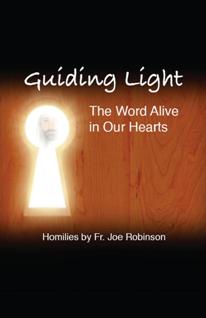
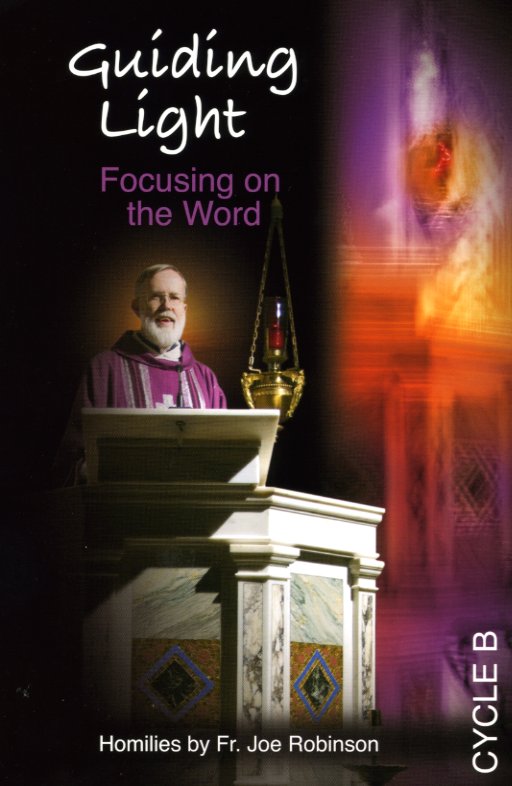
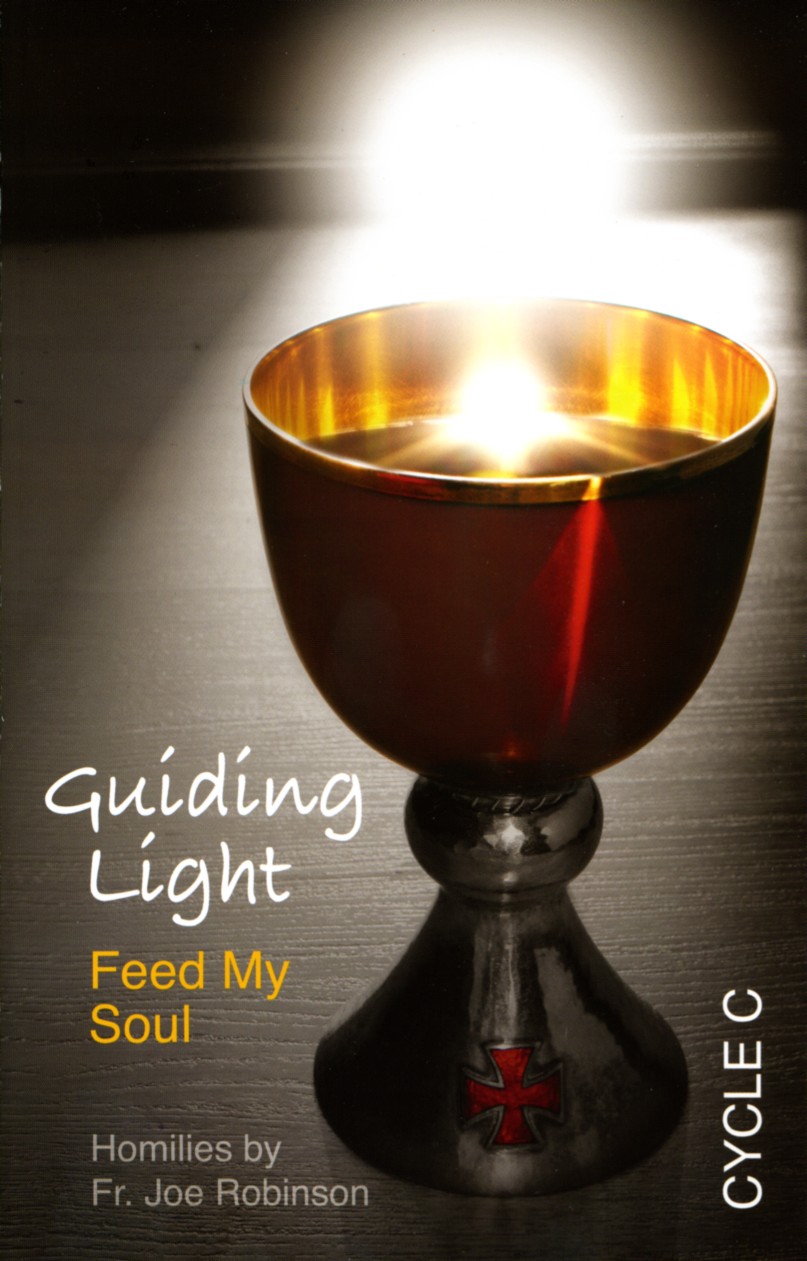

Homilies by Fr. Joe Robinson
$10.00 each plus shipping
Call Doris
1-888-211-3041
| Rita Ring |
|
||||||||||||||||||||||||||||||||||||||||||||||||||||||||||||||||||||||||||||||||||||||||||||||||||||||||||||||||||||||||||||||||||||||||||||||||||||||||||||||
| Fr. Joe Robinson |
|
|
|
|
|

|
|
|
|

|
|
|
|

|
|
|
|
| Fr. Edward J. Carter |
|
||||||||||||||||||||||||||||||||||||||||||||||||||||||||||||||||||||||||||||||||||||
|
|||||||||||||||||||||||||||||||||||||||||||||||||||||||||||||||||||||||||||||||
|
||||||||||||||||||||||||||||||||||||||||||||||||||||||||||||||||||||||||||||||||||||||||||||||||
Get a canvas print of Mary's image
with a sliver of glass and
a little bottle of
Jesus and Mary water.The glass will be fixed behind the
back of the picture.Cost — $200.00
Also available
a cup with a Mary's image on it
Cost — $15
Call Doris
1-888-211-3041
or
1-727-725-9312
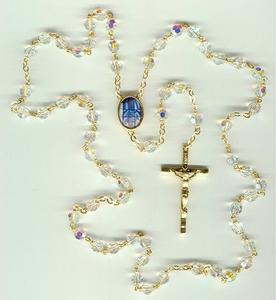
Rosaries with Mary's Image Available
Aurora Borealis Beads6mm - $30.00
8mm - $40.00
Call Doris
1-888-211-3041
or
1-727-725-9312
Statues
Sacred Heart of Jesus w/glass - 18
Our Lady-Guadalupe w/glass - 12
Limpias - 8
Immaculate Heart w/glass - 18
I Heart - Ivory w/glass - 18
Our Lady of Grace w/glass - 18
Our Lady-Mt. Carmel w/glass - 18
Our Lady of Lourdes w/glass - 18
Infant of Prague w/glass - 24
Sacred Heart of Jesus w/glass - 24
Sacred Heart -Blessing w/glass - 24
Sorrowful Mother w/glass - 24
I Heart - Ivory w/glass - 24
I Heart of Mary w/glass - 24
Our Lady of Lourdes w/glass - 24
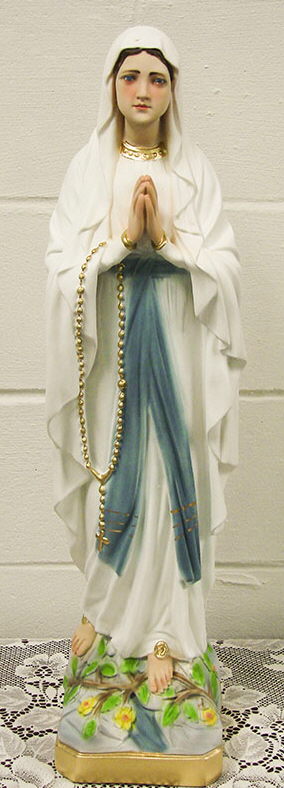
Our Lady-Guadalupe w/glass - 28
Our Lady of Grace w/glass - 24
Our Lady-Mt. Carmel w/glass - 24
St. Padre Pio
St. Joseph
St. Therese
St. Francis
St. Anthony
St. Claire
Limpias
St. Jude
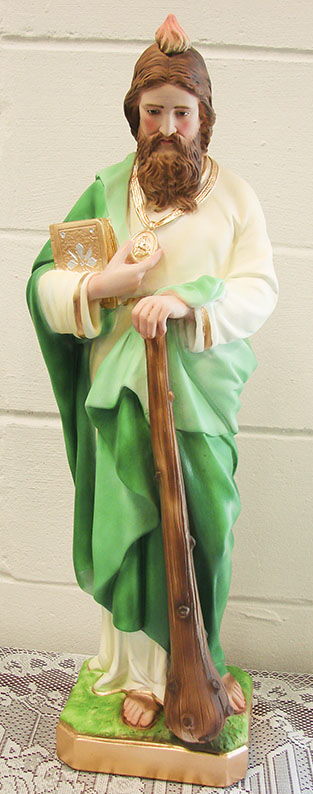
Divine Mercy
Holy Family
Angel
St. Philomena
Pieta - Marble
Pieta - Color
Holy Family
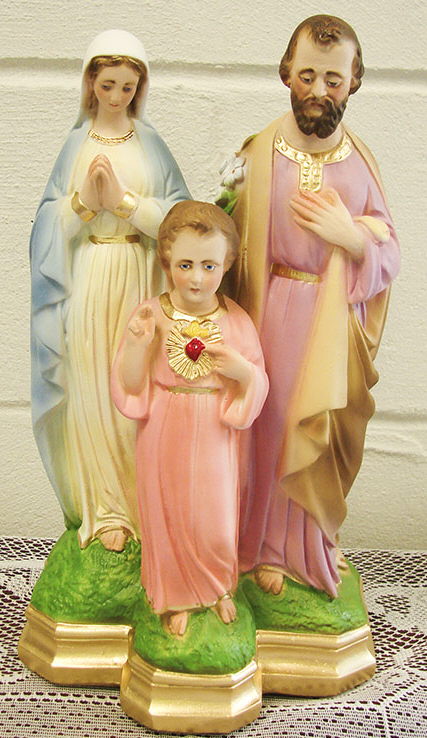
St. Anthony - 18
St. Francis - 18
St. Joseph - 18
St. Therese - 18
St. Rita - 18
St. Clare - 12
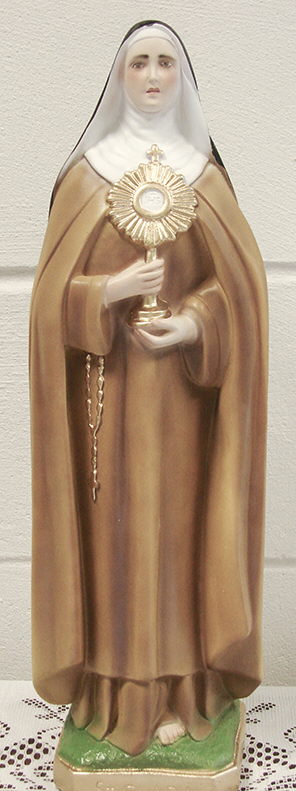
St. Rita - 12
St. Padre Pio - 12
Divine Mercy - 12
St. Michael - 11
Shepherds of Christ Ministries
P. O. Box 627
China, IN 47250
Toll free - 1-888-211-3041
Local - 1-812-273-8405
fax - 1-812-273-3182
web: www.sofc.org
e-mail: info@sofc.org
Size Price Quantity Holy Family
24"
$180
Limpias
24"
$125
St. Anthony
24"
$125
St. Claire
24"
$125
St. Francis
24"
$125
St. Joseph
24"
$125
St. Jude
24"
$125
St. Padre Pio
24"
$125
St. Therese
24"
$125
Divine Mercy 22"
$125 Angel 22"
$100 St. Philomena 20"
$100 St. Philomena 16"
$65 St. Joseph 18"
$65 St. Francis 18"
$65 St. Anthony 18"
$65 St. Rita 18"
$65 St. Therese 18"
$65 Pieta - Color 15" $75 Pieta - Marble 15" $75 Holy Family 12"
$60 St. Padre Pio - standing 12"
$40 St. Padre Pio - sitting 8"
$50 St. Michael 11"
$40 St. Rita 12"
$40 Divine Mercy
12"
$40 St. Claire 12"
$40 Limpias 8"
$25 Our Lady of Guadalupe w/glass 28"
$500 Our Lady of Mt. Carmel w/glass 24"
$500 Immaculate Heart of Mary w/glass
24"
$500 Immaculate Heart - Ivory w/glass
24"
$500 Infant of Prague w/glass
24"
$500 Our Lady of Grace w/glass
24"
$500 Our Lady of Lourdes w/glass
24"
$500 Sacred Heart of Jesus w/glass 24"
$500 Sacred Heart -Blessing w/glass 24"
$500 Sorrowful Mother w/glass
24"
$500 Immaculate Heart of Mary w/glass 18"
$300 Immaculate Heart - Ivory w/glass 18"
$300 Sacred Heart of Jesus w/glass 18"
$300 Our Lady of Lourdes w/glass 18"
$300 Our Lady of Grace w/glass 18"
$300 Our Lady of Mt. Carmel w/glass
18" $300 Our Lady of Guadalupe w/glass 12"
$200 Fatima w/glass
11"
$150 Fatima w/glass
18"
$250 Pilgrim Virgin w/glass 12"
$160 Pilgrim Virgin w/glass 15" $200 Pilgrim Virgin w/glass 18" $250 Pilgrim Virgin w/glass 27"
$450
Call for Shipping Price (1-888-211-3041)
Name
Sub-Total Address
IN Tax (7%) City
Shipping State Zip
Donation Telephone
Order Total
Call Doris
1-888-211-3041
or
1-727-725-9312
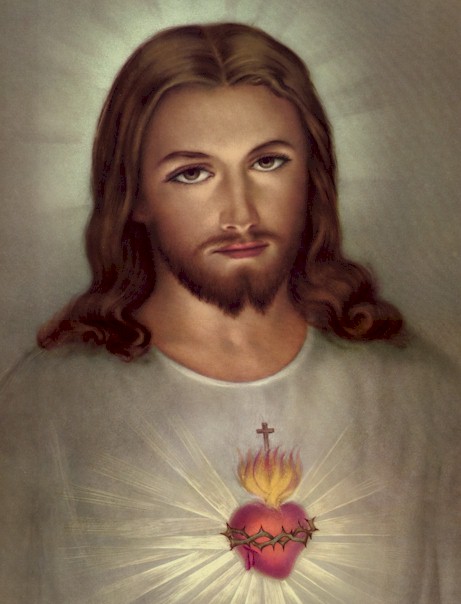
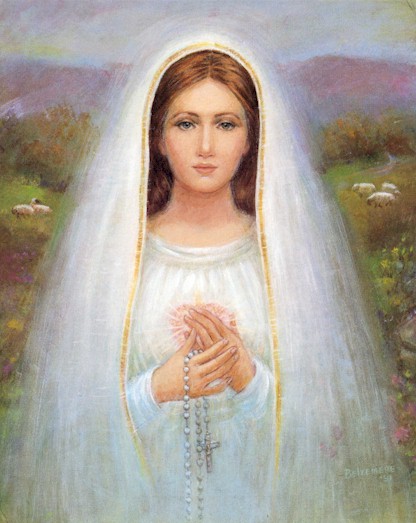
Immaculate Heart and Sacred Heart Pictures Available
with & without frames - different sizes available
Call Doris
1-888-211-3041
or
1-727-725-9312